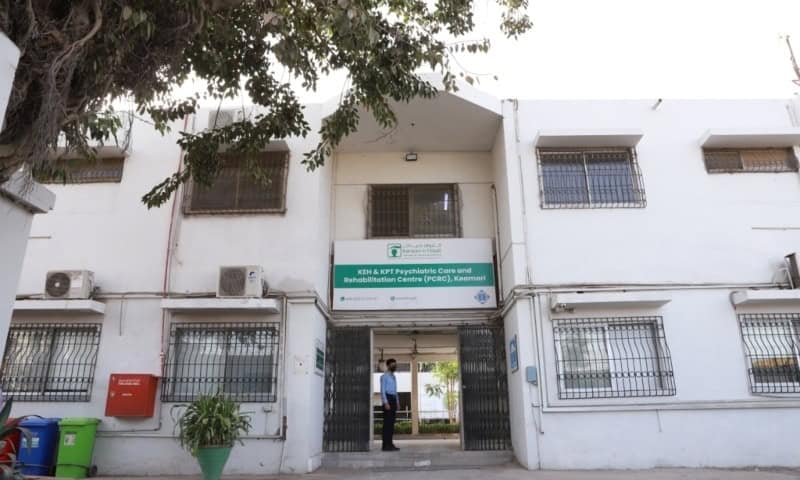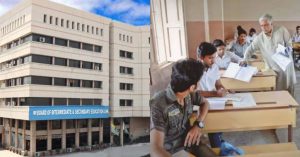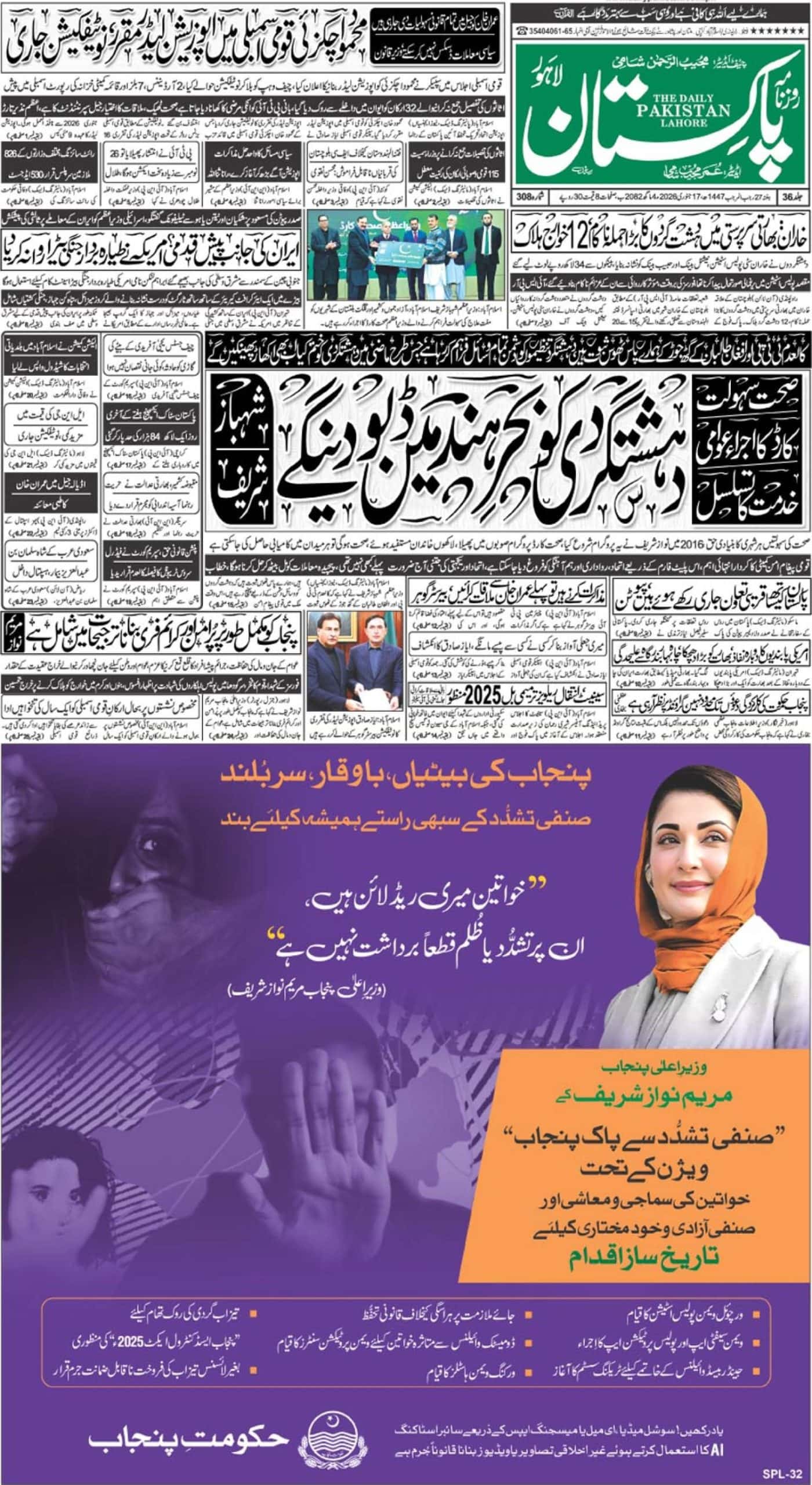Tamkeen Kashif Abbasi
Now in existence for more than 38 years, Karwan-e-Hayat, Institute for Mental Healthcare (KeH) remains one of the largest providers of mental healthcare in Pakistan. KeH focuses on poor and underserved sections of society, providing them free and quality care. 96% of needy patients receive treatment and rehabilitation services free of cost or at highly subsidized rates. 85% of the patients being treated at Karwan-e-Hayat show a significant reduction in symptoms, better levels of productivity and fewer incidents of relapse after being discharged.
A huge and alarming number of people, according to some conservative estimates, 73.6 million people in Pakistan (34% of our population) experience some form of mental illness in their lifetimes. Mental illness is the most neglected and underserved area of public health. Most people suffer in silence because of the huge stigma attached to this illness. This can range from mild depression, anxiety and panic attacks to more severe and psychotic mental disorders like schizophrenia, bipolar affective disorder and post traumatic stress disorder which mostly impacts lower socio-economic sections of society due to the neglect, prevailing inequality and indifference which they face daily.

Additionally, the cost of mental health treatment is unaffordable for poor patients. Worldwide, the economic burden of the illness is around $2.5 trillion. By 2030, it will increase to $6 trillion. This includes spending on psychiatric care which is a direct cost and lost productivity which is an indirect effect.
In Pakistan, it is estimated that 15 million people suffer from mental illness. Alone in Karachi, there are an estimated 2 million people who suffer from mental, emotional, intellectual or social adjustment disorders.
As we are all aware, the world is currently facing the unprecedented challenge of a COVID-19 outbreak. The economic disruption and damage created by this pandemic is devastating for everyone, but more so for struggling countries like Pakistan where the existing healthcare infrastructure is weak and woefully inadequate. The trauma of constantly changing medical alerts and alarming media coverage has led to increased anxiety and panic attacks among the masses forced to live in isolation due to this deadly virus. Never has the need for mental health care been greater or more urgent.

At KeH it is ensured that every deserving patient receives timely and continuous mental health services. Continuous efforts are made for prevention, relief, treatment and rehabilitation of mentally distressed people, especially the underprivileged and deprived. Unlike other non-communicable diseases such as heart or diabetes which afflict humans at a later age in life, mental illness often affects people in the prime of their lives. Mental illness robs the patient of a normal life. KeH adopts modern pharmacology and new community approaches which has made treatment more holistic and effective, and paved the way for the patient to return to a functional life.
The services of KeH are at par with the international quality standard health treatment procedures.
Responding to a question Mr. Zaheeruddin Babar, CEO Karwan-e-Hayat described their journey that the first Karwan-e-Hayat outpatients’ clinic in Punjab Colony started functioning in July 1983. This was the brainchild of Dr. Zafar Qureshi who was then the Head of Psychiatry at Liaquat General Hospital. He was increasingly distressed by the plight of poor psychiatric patients who lived in misery because they could not afford to pay for their treatment. He decided to set up a free clinic to help them. Begum Liaquat Ali Khan was among the founding director of Karwan-e-Hayat, along with a number of other important and influential citizens of Karachi. Today KeH functions as a 100 bed hospital and rehabilitation unit in Kemari with an outpatient facility at Jami and a community Psychiatry Centre in Korangi.
One of the unique features of Karwan-e-Hayat is its Psychiatric Rehabilitation program which runs as a day treatment program and includes psychotherapy, family psycho education and case management. Its goal is to enable the patient to return to the mainstream of life. It is an evidence-based program which has been introduced, taught and monitored by faculty members of Rutgers University, USA for more than a decade. The Daycare program runs five days a week, 9:30 am to 3:30 pm, for both inpatients and outpatients, and on Saturdays only for inpatients. Patients are re-introduced to activities such as arts & craft; yoga & physical exercises; music training; computer training; stitching; beautician tips; library sessions; cooking classes; gardening and movie sessions. Patients learn life skills, vocational skills and, in some cases, become eligible for sheltered employment within Karwan-e-Hayat.

Mr. Zaheeruddin also emphasized that community at large has a role to play in respecting the rights and needs of people with mental illnesses. In low and middle-income countries, between 76% and 85% of people with mental disorders receive no treatment for their illness. In addition to support from health-care services, people with mental illness require social support and care. This is the service gap that Karwan-e-Hayat seeks to fill with timely, professional and caring treatment of mental illnesses and the rehabilitation of patients so that they can live and be active in their own communities.
Talking about the challenges he said that the stigma associated with mental illness has been Karwan-e-Hayat’s greatest challenge and it has constantly tried to counter this negativity. With the determination to provide healing options to people facing mental health challenges, Karwan has given hope to thousands of people.
Considering the gaps in service provisions for mental healthcare systems, Karwan-e-Hayat essentially advocates on behalf of those who have been underprivileged or ignored by the system for too long.
The corporate sector and high net-worth individuals can help facilities like Karwan-e-Hayat run not just treatment programs, but also ensure vocational training of these patients that would help them lead a productive life.
Karwan-e-Hayat can be contacted at:
Karwan-e-Hayat Psychiatric Care and Rehabilitation Centre, Near KPT Hospital and Ziauddin Hospital, Keamari, Karachi
Phone: UAN: (021) 111-534-111
Email: info@keh.org.pk
Website: www.keh.org.pk













